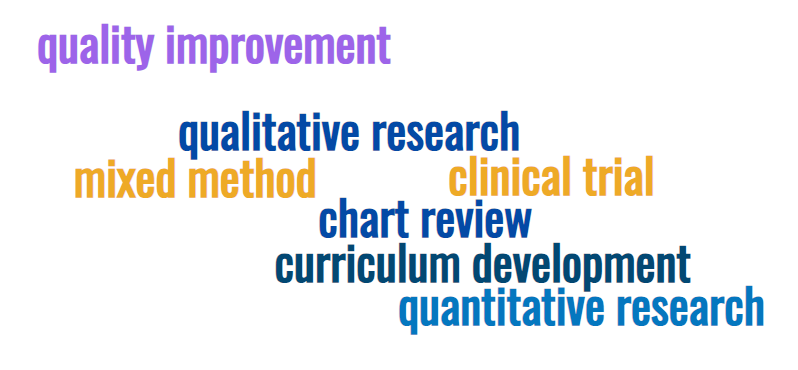RSP Overview
General Description
The RSP is a mandatory component of our Residency program.
The RSP can range in scope and content. The RSP includes, but are not limited to, research studies, curriculum development, quality improvement (QI) projects.

Residents have 2 research blocks (8 weeks) during residency that are to be dedicated to setting up, initiating, and completing the required scholarly project.
Residents may choose to utilize selective time for additional Scholarly Project blocks to complete their scholarly projects. Selective Scholarly Project blocks must have clear goals and objectives and need to be approved in advance by the RSP Coordinator.
A resident may undertake more than one scholarly project throughout their residency if they choose. Residents may work with other residents on a scholarly project; however, each resident should have at least one project in which they are the lead resident.
Requirements
Residents must meet with the RSP Coordinator regularly throughout their residency to monitor progress and provide guidance. Residents are responsible for scheduling these meetings prior to and at the end of each scholarly project block.
Residents must meet with their Faculty Project Lead regularly throughout their residency to monitor progress and provide guidance.
Each resident is expected to present a project proposal (Year 1), a work in progress update presentation (Year 2 or 3) and a final project summary (Year 4 or 5).
For additional information please see the Research tab (Research Resources).









